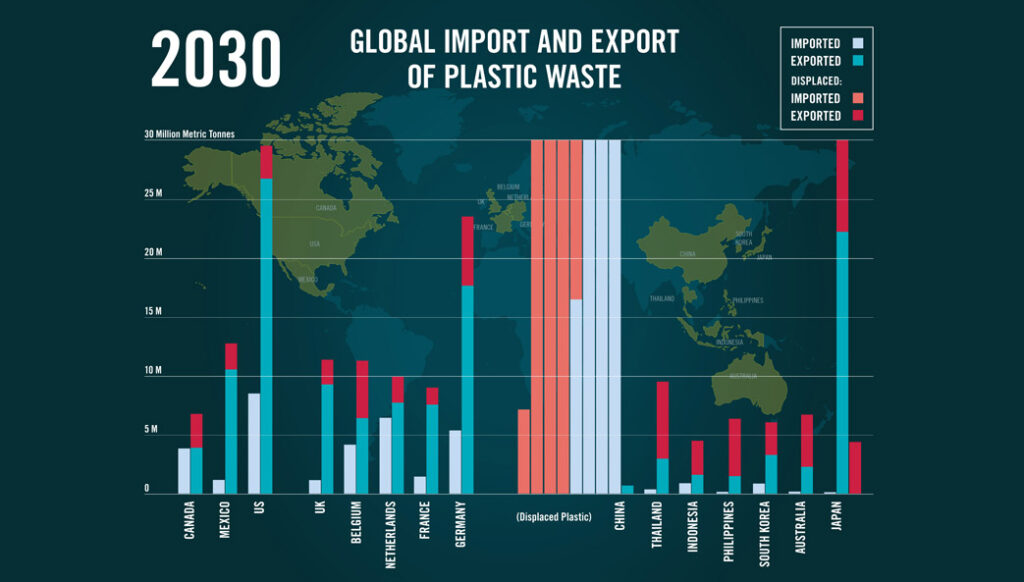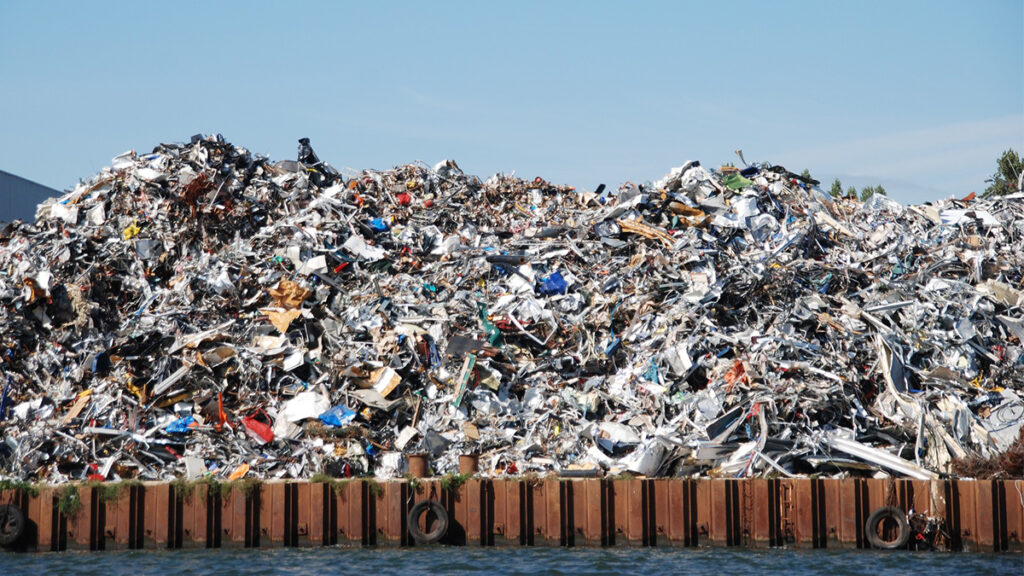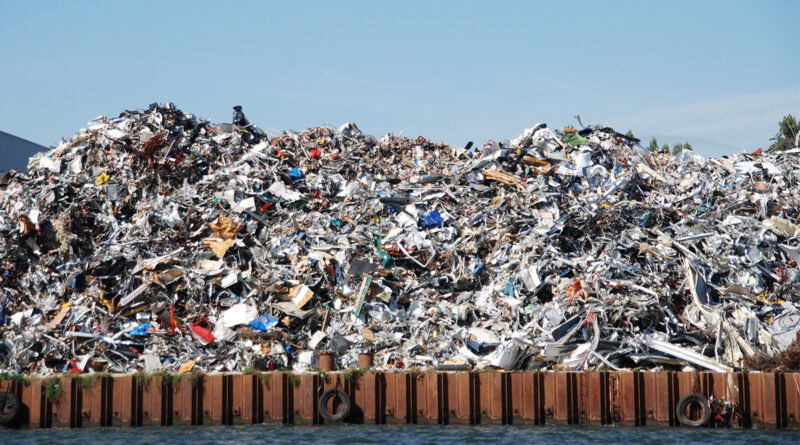Importing Plastic?
Reviewing China’s Plastic Import Policy and Its Effects on Global Sustainability
By: Spencer A. Backman, Global News Editor
In 2018, China enacted a ban on most foreign plastics bound for Chinese recycling plants which led to a global shift in how to manage plastic waste.
China spent decades as a global plastic processing powerhouse, allowing rich nations to export their waste instead of managing overuse and onshoring plastic processing solutions. In 2018, China enacted the “National Sword” policy which banned the import of most of the plastic waste that were sent to the country to be processed and recycled sustainably. These processes often led to rich nations sending toxic or impossible-to-recycle waste to developing countries with little accountability.
China’s “National Sword” policy was a global wake-up call that fed into an ongoing change in thinking about how to manage waste. Some private companies in the United States changed their systems, even achieving zero plastic waste exportation outside of North America.
Prior to the “National Sword” policy over 90 percent of plastics in the European Union and roughly 70 percent of those in the U.S. were sent to be processed in China. In February 2017, China imported 581,000 metric tons of plastic waste, while in Feb. 2018, that number dropped to 23,900 tons, leaving 557,100 tons of plastic waste to be shipped to developing nations that often lacked the infrastructure to manage it.
Most plastic waste still does not get recycled, including 62.4 percent of plastic waste in the E.U. in 2020 and 67.9 percent of municipal solid waste in the US in 2018.
Many developed countries continue to ship plastic waste to Southeast Asia and Africa where it often degrades in shipping containers years after arrival at a port, and many countries and communities have not changed their practices to accommodate for China’s policy and the lack of processing capability.
Efforts to curb plastic consumption and increase renewable options have been ongoing for years. Including efforts from the private sector, the national level and the United Nations via the Sustainable Development Goals adopted in 2015, specifically in SDG 12, Responsible Consumption and Production.
Something more noticeable for travelers is that some hotels stopped offering the mini –bottles of shampoo, conditioner and soap. Hotels have moved to placing larger, refillable dispensers in showers and sinks instead.
Universities have been pioneers in recycling solutions, by moving to electronic textbooks, increasing awareness and often dedicating projects to responsible consumption and production.
Lynn University in Boca Raton, Florida is hosting its annual fashion showcase with a sustainability theme on Feb. 23, 2024. By working with dedicated partners in industries ranging from waste to fashion to travel, Lynn is leading the way in finding renewable options for the long–term, on stage and off.






